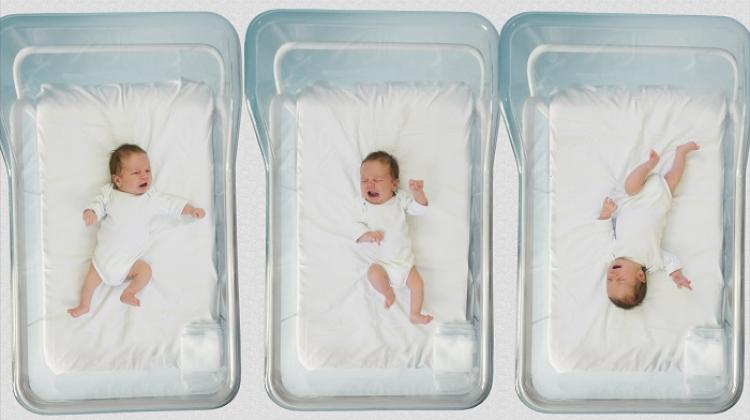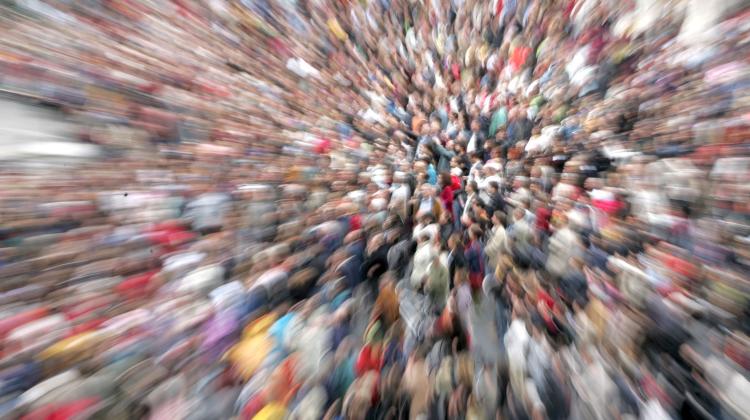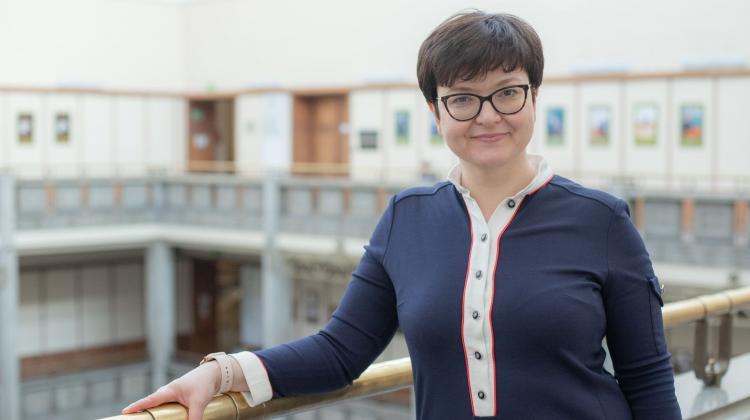Migrations are not getting more intense but Poland is among new destinations
 Credit: Adobe Stock
Credit: Adobe Stock
Migrations are a natural phenomenon and the impression that they are particularly intense today is wrong. However, the directions of migration are changing, and Poland has been among the new ones for several years.
Dr. Dominika Pszczółkowska from the Migration Research Centre at the University of Warsaw says: ‘It has become the number one country in the European Union in terms of the number of new arrivals for work.
'At the end of the 19th and the beginning of the 20th century, during the so-called the first globalisation, despite the fact that transport and communication were much greater challenges, a larger share of people lived abroad than today.
'On a global scale, the percentage of migrants has not changed substantially since the 1960s - it is approximately 3 percent. It is true that international organizations such as OECD and UNHCR report that the numbers of migrants and asylum seekers are higher than ever, but these are absolute numbers, not a percentage of the world's population.’
According to the latest data from the World Bank, approximately 184 million people currently live outside the countries of their birth. Almost half of them live in low and middle income countries.
Speaking about the reasons for migration, Dr. Pszczółkowska points out that 'the most important reason was and is the demand for employees. Most people who cross borders do so with specific information about a job opportunity, or even an offer made to them by an intermediary. Most travel legally, with a visa.
'Poland is a very good example. Although politicians and the media paid a lot of attention to people crossing the Belarusian-Polish border, many times more people from Asian and African countries arrived after first obtaining the necessary permits and visas. The same thing happened in other countries where economies needed workers.’
When asked who the migrating people are from a global perspective, Dr. Pszczółkowska says that 'they are more often people in the so-called mobile age, i.e. relatively young working people'. Commenting on migration routes, she admits that 'they can be very different, depending on supply, demand and chance.
'The first person is often followed by others, using the so-called migration networks. In this way, for years, people would travel from Mońki in Podlasie to Brussels, and from Stare Juchy in Masuria to Iceland.
'For example, a well-known +exporter+ of nurses is the Philippines, where young women choose this path of education with the intention of emigrating. The rich countries of the Persian Gulf, where there has been a construction boom in recent decades, attract construction workers from Asian and African countries. Germany, Switzerland and the United Kingdom, in turn, attract doctors from many poorer countries in Europe and the world, but also, for example, people to care for a growing number of elderly people.’
Discussing how the host countries dealt with the issue of migration last year, the expert says that 'countries where there is a demand for the work of foreigners implement policies that de facto enable their recruitment.’
She ‘adds: ‘This does not prevent some political leaders in these countries from using the narrative that foreigners are unwelcome. However, it is worth emphasizing that - with the exception of forced migration, for example in the event of a war - migrants tend to not go to places where they are not offered work.’
At the end of December, EU member states, the European Parliament and the European Commission 'reached agreement on the main political elements' of the pact on asylum and migration. If the changes come into force, member states will have a choice between accepting refugees and contributing funds to the EU budget. The anticipated control system will aim to distinguish between those in need of international protection and those who do not.
People whose asylum applications are unlikely to be successful - such as those from India, Tunisia or Turkey - may be stopped from entering the EU and detained at the border, as may those perceived to pose a security risk.
'One of the most important effects of the EU migration package may be making it easier to +push+ people whom EU countries do not want to accept away from the EU borders and send them back. People from countries whose citizens are usually not granted asylum in the EU will receive refusal decisions in an expedited procedure. Individual member states will be able to more easily return arrivals to their transit countries, e.g. from Germany to Poland,’ says Dr. Pszczółkowska.
Jakub Bawołek (PAP)
jbw/ ap/ kap/
tr. RL
Przed dodaniem komentarza prosimy o zapoznanie z Regulaminem forum serwisu Nauka w Polsce.


















